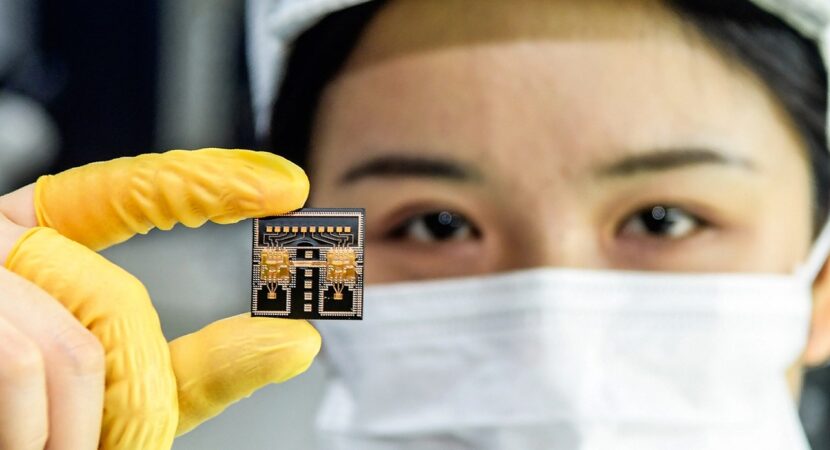
A team of researchers from China has discovered a new material capable of replacing silicon, a material widely used in the production of semiconductor chips. The new material is 10 times more conductive.
Silicon, used in almost all chips and semiconductors, is the material that made possible the entry of much of modern technology. However, a team of researchers in China has found an alternative that may be the best semiconductor material ever found. Scientists at the Massachusetts Institute of Technology (MIT), the University of Houston, and other public institutions published a paper that cited material called cubic boron arsenide, which is much better at conducting heat and electricity, and could be a discovery that could pave the way for smaller, more powerful chips.
China researcher returns to science as a leader after US investigations
Among those involved in the discovery that can replace silicon is Chen Gang, a professor of mechanical engineering at MIT who was cleared of charges after more than a year of investigations by the US Department of Justice.
The professor, who was born in China and is a naturalized American, was a prominent target of the now-defunct China Initiative, a program created under the Trump administration that investigated Chinese scientists in the name of preventing spying. Chen was arrested in January last year for allegedly failing to disclose ties to Chinese institutions.
The charges were dropped earlier this year due to lack of evidence. The scientist from China claims that even after months of his name being cleared, he still struggled with the fear he felt during the investigation. The latest discovery marks the researcher's return as a leading scientist in his field. The team includes MIT Postdoctoral Associate Jungwoo Shin and Professor Zhifeng Ren of the University of Houston and found that the thermal conductivity of cubic boron arsenide is nearly 10 times that of silicon, which could be a game changer. waters.
New semiconductors are produced on a small scale
The material also has a band gap very good, a property that gives it great potential as a semiconductor material, given that it can change from an insulator to a conductor depending on the temperature.
According to Chen, in a press release from MIT, this is impressive, since he does not know any other material, besides the graphene, which has all these properties. And this is a material that has these properties.
Although cubic boron arsenide seems like a distant dream for chips semiconductors, it has only been produced and tested in small lab-scale batches that are not uniform. The goal now is to find a way to economically mass produce the material while maintaining uniform quality.
Durability and stability of the new material will be tested
According to Chen, silicon is the workhorse of the entire industry, so it is common to have a material that is better, however it is not known whether it will really pay off for the industry.
While the material looks like an almost ideal semiconductor, whether it can make its way into a device and replace part of the current market remains to be seen. The long-term stability and durability of the China researchers' new material has yet to be tested.
Commercial use of cubic boron arsenide may still be some way off, but it could make a difference in some uses in the near future due to its unique properties. This research was supported by the US Office of Naval Research and the National Science Foundation.












Army summons Brazilians with up to…
Come be a watermelon, you too
Air Force F-16 fighters…
Everything is fine, 100-year secrecy,…
Air Force F-16 fighters…
Well... It's flying scrap... Typical...
Air Force F-16 fighters…
Which genocide are you talking about? Than…
They discover the third largest deposit…
That’s why all foreigners and NGOs…
A scam is taking a rogue thief out of…
Translate into Brazilian Portuguese?
In what world do you live in? Narnia? (now go...
It could be that these older people…
I am a carpenter, assembler of all types…
I'm a carpenter I want
I wanted to understand better!
I am available